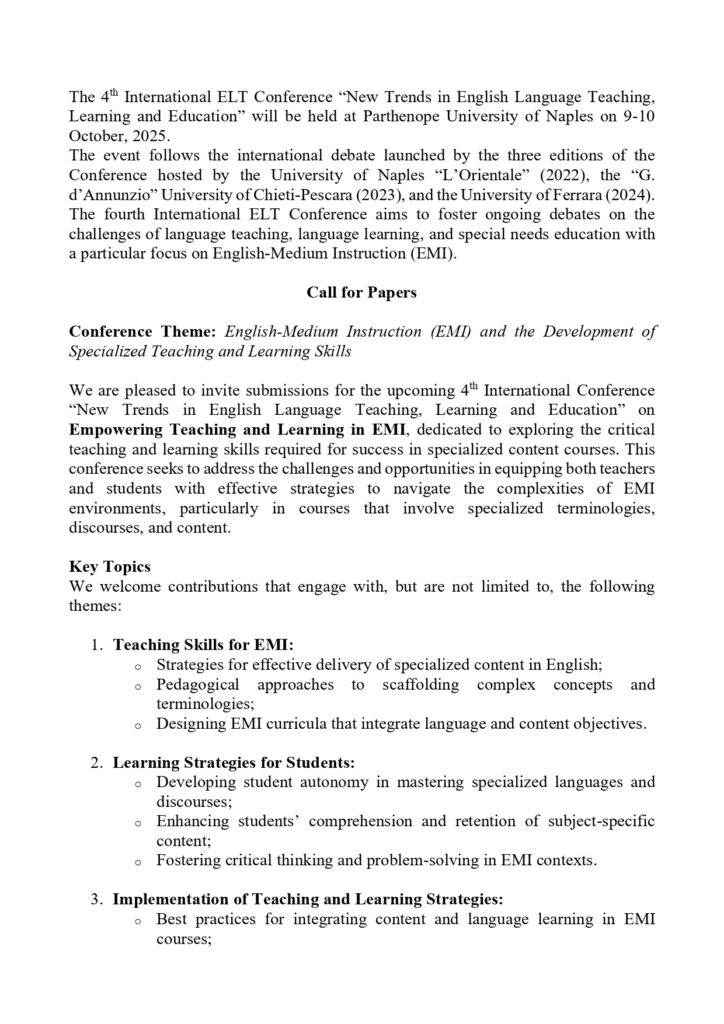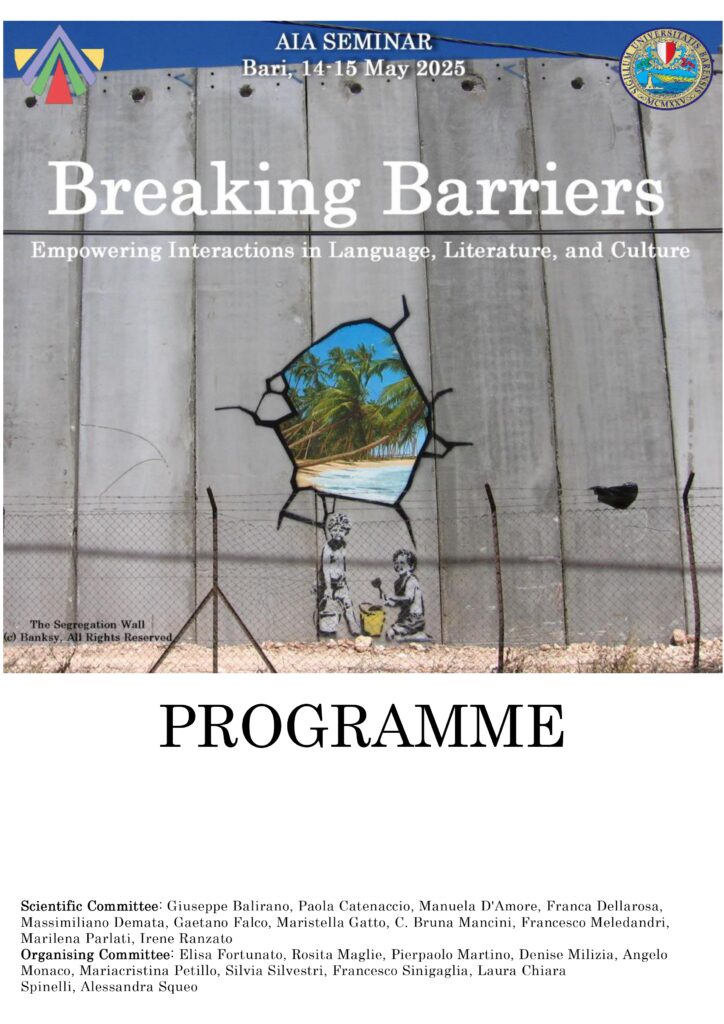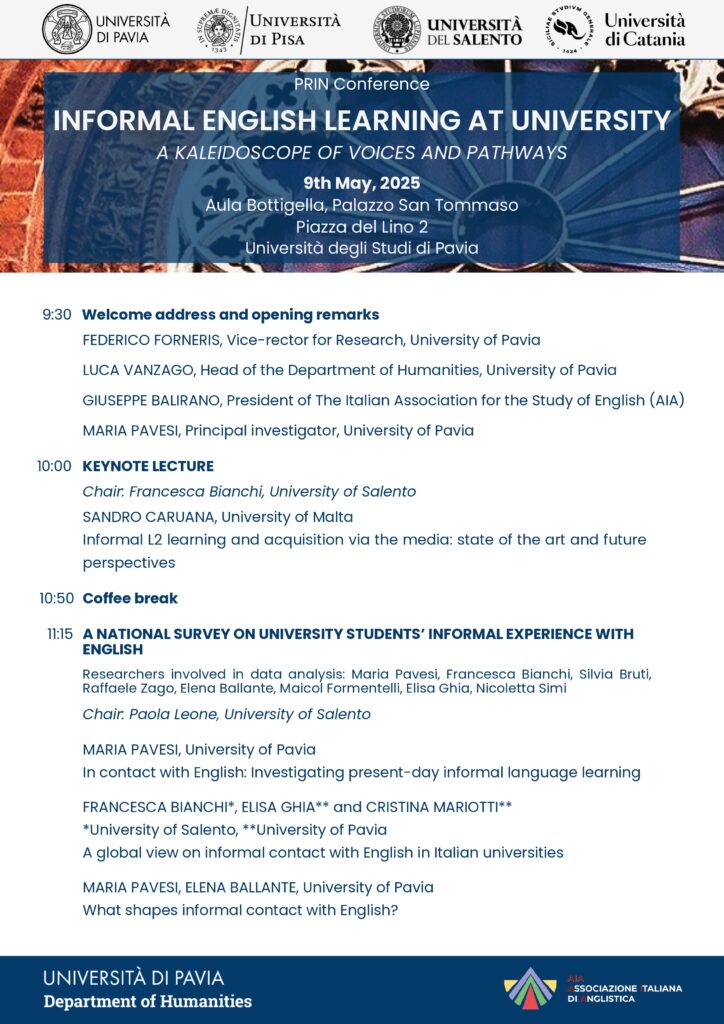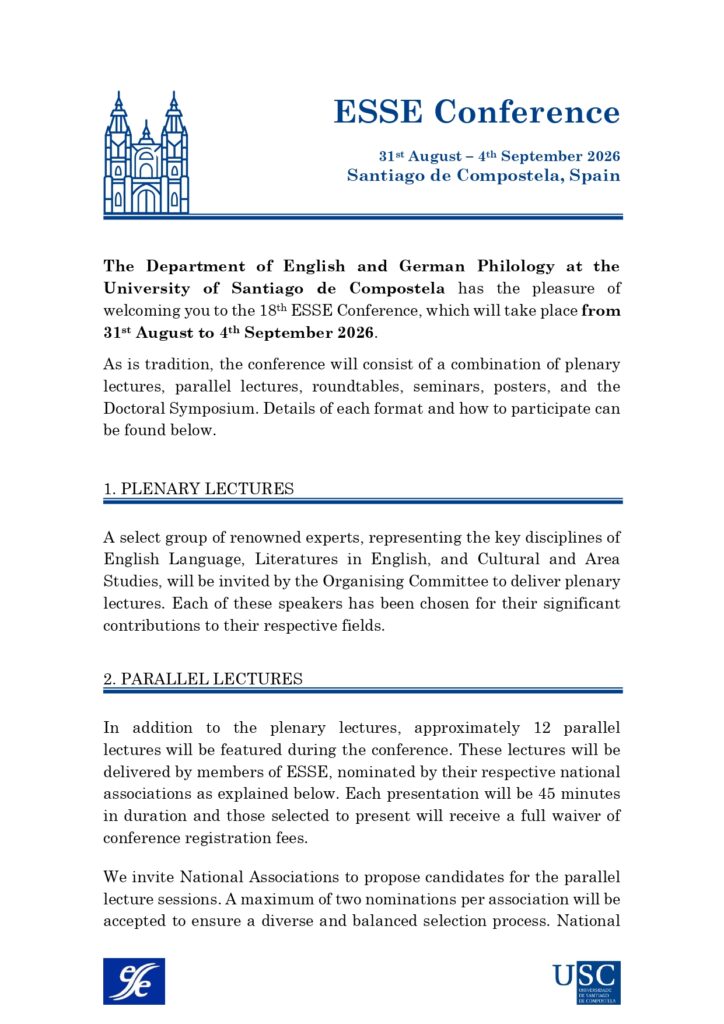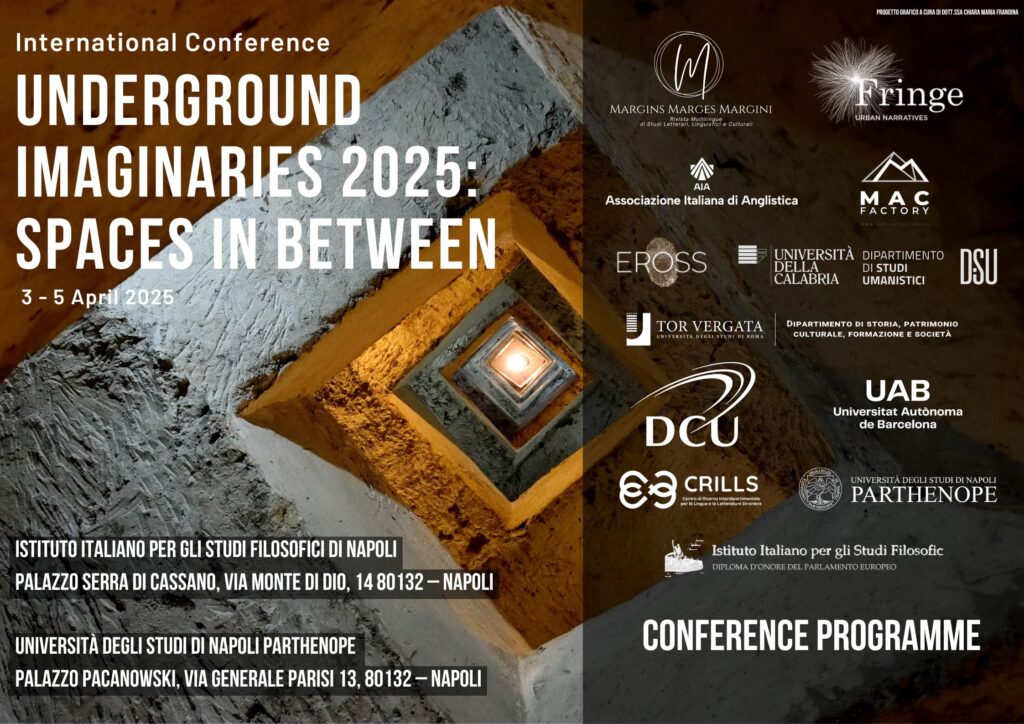CALL FOR CONFERENCE PAPERS Minding the Present: Bodies, Places, Matter in and between Australia and Europe (EASA Conference) 17-19 September 2025 Department of Linguistic and Literary Studies, University of Padova (Via Vendramini, 13, Padova, Italy) We are pleased to announce the call for papers for the conference Minding the Present: Bodies, Places, Matter in and between Australia and Europe, to be held on 17-19 September 2025, at the University of Padova (Italy). In this conference we aim to explore the demands of the present, the actions and interactions we are all bound to set into motion in order to engage in political and art-activistic practices to start caring for and curing our vulnerable planet and our insecure standing on and with it. Central to our exploration is the ontology of the present—the hic et nunc (here and now)—together with the concepts of present orientation and the re-figurations of time/s. We will focus on how, through discourse, art, literature and geopolitical praxis, we can understand, experience, and potentially reshape both our perception of time, particularly in relation to the present moment. We are especially interested in investigating the present as a dynamic space situated between archives of the past (Hall, 2001) and what P. Saint-Amour has defined as traumatic anticipations of the future (Saint-Amour, 2015), taking into account nonlinear, non-Western and Indigenous cosmologies and heterotopias. In this way, we assert that, as Hodgson suggests, “the present moment is not… a static fixed coalescence but a super complexity, the dynamism of which determines its ability for anticipation” (2013, p. 31). We seek to examine the shaping experiences, identities, and perceptions of the present as a catalyst to urgent action both in Australia—with a special alertness to the very rooted cultures of Indigenous Australia—and in the complex relations between Europe and Australia. The conference particularly welcomes contributions from literature, linguistics, the performing arts, anthropology, cultural geography, memory studies, political and legal studies. We also encourage interdisciplinary and cross-disciplinary approaches. Among the questions that contributions may address, we would be interested in the following ones: We invite contributions that address the following topics (but are not limited to them): We particularly encourage papers that explore the interplay between archives of the past, the present moment, and anticipations of the future, examining how these temporal dimensions interact in the Australian and Australia-Europe contexts, especially those that draw from literature, the performing arts, anthropology, postcolonial studies, gender studies, trauma and disability studies, politics and legal studies. References: Augé, M., The Future, London, Verso, 2014 Hall, S., “Constituting an Archive”, Third Text, 15(54), 2001, pp. 89–92 Hodgson, A., “Towards an Ontology of the Present Moment”, On the Horizon, 21(1), pp. 24-38 Jameson, J., A Singular Modernity. Essay on the Ontology of the Present, London, Verso, 2002 Saint-Amour, P., Tense Future. Modernism, Total War, Encyclopedic Form, Oxford, Oxford University Press, 2015 Deadlines: Abstract (300-400 words) and a short bionote (200 words): 8 June 2025 Notification of acceptance: 20 June 2025 Registration (open from 2 July) (please note that panelists must be or become regular EASA members) Early bird 2-25 July 2025 200 euros 25 August-14 September 2025 280 euros PhD students: 100 euros Students and PhD students of the University of Padova: no fees Fees include coffee and lunch breaks, plus a conference set. The conference dinner will take place on 18 September (more info on costs and the location will be offered at a later stage on the dedicated website). Scientific Committee: Dany Adone, Valérie-Anne Belleflamme, Salhia Ben-Messahel, Matthew Graves, Marie Herbillon, Irma Krčan, Maggie Nolan, Claudia Novosivschei, Marilena Parlati, Iva Polak, Geoff Rodoreda, Astrid Schwegler Castañer Organising Committee: Maria Renata Dolce (University of Lecce), Eleonora Federici (University of Ferrara), Francesca Mussi (University of Pisa), Marilena Parlati (University of Padova) The Conference website is under construction, more information will be posted on the EASA website. The Conference is meant as an in-person event for accepted speakers, but the conference will be available on zoom for external attendees. Contact: marilena.parlati@unipd.it (for proposals, please use the heading “EASA 2025 Padova”)

